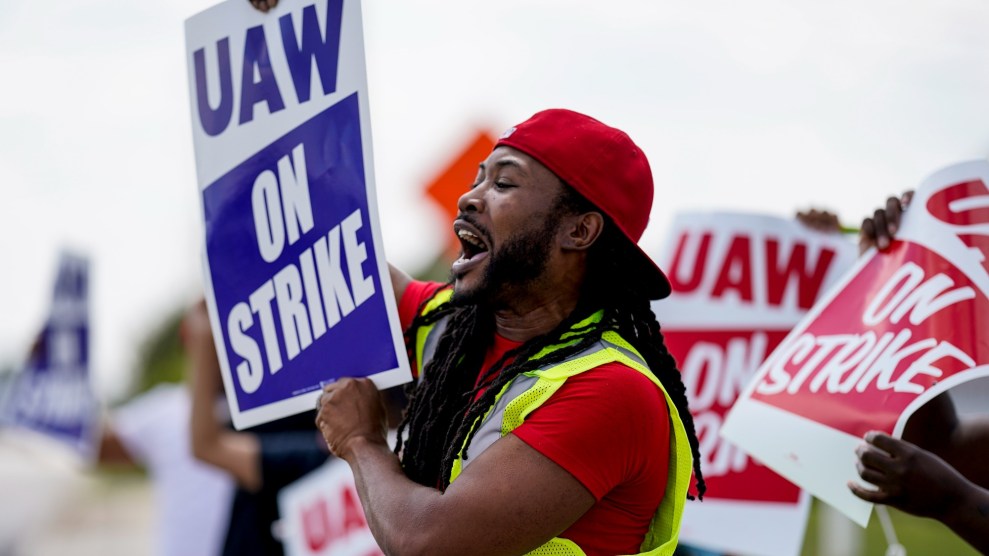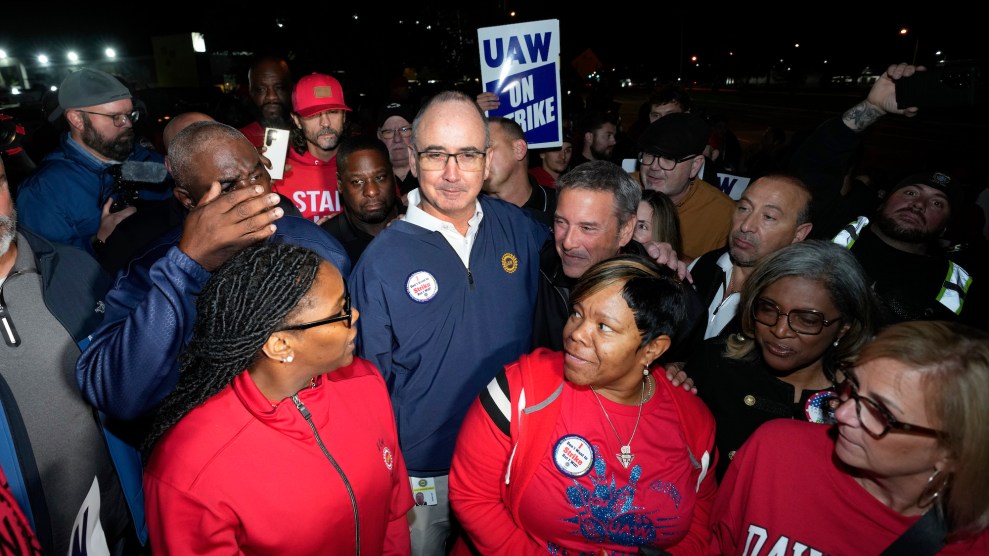
A United Auto Workers members picket near a Stellantis parts-distribution center.Mike Stewart/AP
The United Auto Workers Union is ramping up its unprecedented strike against the nation’s three major automakers and hitting one company where it hurts: pickup trucks. On Monday, in a surprise move from the union, UAW president Shawn Fain announced that more than 6,800 employees are walking off work at a pickup truck production plant in Sterling Heights, Michigan—one of the most important plants to Stellantis, which has reportedly been the most stubborn of the three automakers in negotiations.
“Despite having the highest revenue…Stellantis has the worst proposal on the table regarding wage progression, temporary worker pay and conversion to full-time, cost-of-living adjustments, and more,” the UAW said in a press release.
"No bucks, no trucks!"
Local 1700 has shut down Sterling Heights Assembly! #StandUpUAW pic.twitter.com/q5sSniIuor
— UAW (@UAW) October 23, 2023
Since September, the UAW has striking at General Motors, Ford, and Stellantis—the first time in history that the union has hit all three major automakers at once. The Sterling Heights plant is key to manufacturing Stellantis’ best-seller: the Ram 1500 full-size pickup truck.
As my colleague Noah Lanard has reported, President Shawn Fain has adopted a unique technique the union has branded as a “stand up strike.” Instead of all workers walking out at once, UAW has strategically announced workers at particular plants would strike without much warning, surprising the companies. So far, the method has yielded promising results.
Both GM and Ford were spared from this recent escalation, the first in nearly two weeks. Stellantis’ offer did not meet union demands, prompting one of the first increases in the strike since October 11, when 8,700 UAW members halted production at Ford’s Kentucky Truck plant in Louisville.














